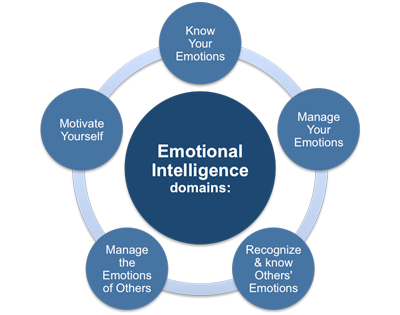- Realize that the first reaction you have to something is emotional but you don’t have to let that drive how you respond. You can choose to pause and give your brain time to execute reasoning before responding. The key is to pause. We so often react in ways that further exacerbate the negative situation. When we pause, we have an opportunity to form a response rather than react. Remember, just because you feel something doesn’t mean you should act on that feeling.
- Learn to identify your emotions and discern what is underneath what you are feeling. If you are feeling angry, ask what is underneath that feeling? Perhaps your angry feeling is covering up feelings of inadequacy or feelings of distrust. When you are engaged in a snarky interchange with someone, stop and ask yourself why you are feeling snarky? Are you annoyed by something? Would you prefer they asked you in a different tone? When we identify the emotion we are feeling it raises our self-awareness which gives us the ability to manage the emotions better. We could choose to say, “When you ask that in such a demanding tone, it’s hard to hear what you are saying” rather than responding in a snarky tone which only perpetuates the negative encounter.

- Practice just hearing others without needing to respond. Are you really hearing what is being said or are you interpreting what is being said? It takes some practice but you can learn this skill of listening. When someone says something to you, reflect back by saying, “So you’re saying that …” in order to be sure you are hearing the message they are intending to send. For instance, your spouse says, “You need to help put the kids to bed” but you only heard “You never help around here.” If you slow down and just hear the person, you can avoid arguments.
- Evaluate how often you are telling yourself truth rather than a perception. We can believe strongly about something even though it is not true so it is important to test everything we tell ourselves by asking, “Is that a truth or a perception?” If you say, “I don’t have any friends” it can be a depressing thought but if you ask yourself if that is a truth or a perception, you will likely learn it is just a perception. We can manage our emotions. A good first step is to be sure we are saying and thinking truths.
- When faced with conflict, begin by seeking to understand rather than to be understood. Conflicts often bring out the worst in people. Each party wants to be heard and understood but they seldom stop to really hear and understand the other person. Stop the cycle of ineffective fighting. Choose to fully understand what the other person is saying and feeling. Identify if you can understand why they would feel that way and tell them what you hear them saying. Help them by letting them know you truly understand where they are coming from. Then ask them to hear your perspective. Then you can try to find a compromise or simply apologize for your role in the argument.

- Watch your self-talk. We can get into a habit of telling ourselves lies or catastrophizing. Do you tell yourself, “I will never get a job” or “that you can’t ever find someone to help?” We must take responsibility for what we are telling ourselves because it will keep us stuck. It may be true that getting a job will be hard but we can’t say “it will never happen.” Try to stop using words like “always and never.”
- Believe that you can change. So many people say they can’t control their visceral response to conflict but we know that isn’t true. When you are at home and having an argument with someone and the doorbell rings, you are likely able to change your emotions enough to treat the person at the door kindly. You can change the way you respond emotionally. It’s a choice that needs to be practiced consistently before it can become a habit. Choose to work diligently every day to combat old patterns of behaving.




